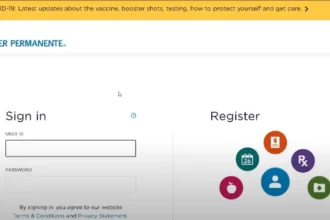When you’re dealing with legal matters, one of the biggest concerns that probably pops into your mind is the cost. Lawyers aren’t cheap, and legal fees can quickly add up. But what if there was a way to get top-notch legal representation without paying a dime upfront? That’s where Contingency Fees come into play.
- How Do Contingency Fees Work?
- Pros and Cons of Contingency Fees
- Common Types of Cases That Use Contingency Fees
- What to Consider Before Agreeing to a Contingency Fee Arrangement
- FAQs About Contingency Fees
- 1. Do all lawyers work on contingency fees?
- 2. What happens if I lose my case?
- 3. Can I negotiate the contingency fee percentage?
- 4. Are contingency fees only for personal injury cases?
- 5. Is there a downside to hiring a lawyer on a contingency fee basis?
- Conclusion
A contingency fee arrangement is a payment structure where your lawyer only gets paid if they win your case. Instead of charging you an hourly rate or a flat fee, they take a percentage of the compensation you receive. If you don’t win, you don’t pay. Sounds like a pretty good deal, right? Let’s dive deeper into how contingency fees work, their pros and cons, and what you should know before choosing a lawyer based on this type of payment agreement.
How Do Contingency Fees Work?
Contingency fees are most commonly used in cases where a client is seeking financial compensation, such as personal injury claims, employment disputes, and certain business litigation matters. Here’s how the process generally works:
Initial Consultation – You meet with a lawyer to discuss your case. If they believe you have a strong case and a good chance of winning, they might offer to take it on a contingency fee basis.
Agreement on Percentage – If you decide to move forward, you and the lawyer agree on a percentage the will take if you win. This is usually between 25% and 40% of the final settlement or court award.
No Upfront Costs – You don’t have to pay anything out of pocket for the lawyer’s services. They handle everything, from gathering evidence to representing you in court.
Payment Only if You Win – If you win the case, the lawyer takes their agreed-upon percentage from the compensation. If you lose, you owe them nothing.
Pros and Cons of Contingency Fees
Like anything else, contingency fees have their advantages and disadvantages. Here’s a breakdown to help you determine if this type of payment structure is right for you.
Pros:
No Upfront Costs – You don’t need to worry about paying legal fees while dealing with an already stressful situation.
Motivated Lawyer – Since the lawyer’s payment depends on winning the case, they are likely to put in their best effort.
Access to Quality Legal Representation – Even if you don’t have the financial means to hire a high-profile lawyer, contingency fees allow you to get top-tier representation.
Less Financial Risk – If you don’t win, you don’t owe anything, which makes legal help more accessible.
Cons:
Higher Percentage for Lawyers – Lawyers typically take a significant percentage of your settlement or court award, which means you may receive less than expected.
Selective Case Acceptance – Lawyers only take cases they believe they can win, which means they might turn down your case if they see a low chance of success.
Less Control Over Settlement Decisions – Since your lawyer has a stake in the outcome, they might push for a settlement rather than taking the case to trial if they think it’s a safer bet.
Common Types of Cases That Use Contingency Fees
Not all legal cases can be handled on a contingency fee basis. These types of cases typically involve some form of financial compensation at the end. Some common examples include:
- Personal Injury Cases – Car accidents, slip and fall incidents, medical malpractice claims, etc.
- Employment Cases – Wrongful termination, discrimination, and unpaid wages.
- Class Action Lawsuits – Cases where a group of people sues a company or entity for damages.
- Defamation Cases – When someone is suing for damages due to reputational harm.
What to Consider Before Agreeing to a Contingency Fee Arrangement
Before signing any agreement with a lawyer, here are some crucial things to consider:
The Percentage Charged – Understand how much of your settlement the lawyer will take. Ask if the percentage is negotiable.
Other Potential Fees – Some lawyers charge for additional expenses like filing fees, expert witnesses, and court costs. Clarify if these costs will be deducted from your winnings or billed separately.
The Lawyer’s Experience – Ensure you’re hiring an experienced lawyer with a successful track record in contingency fee cases.
How Long the Case May Take – Legal cases can sometimes take months or even years to resolve. Ask your lawyer for an estimated timeline.
FAQs About Contingency Fees
1. Do all lawyers work on contingency fees?
No, not all lawyers offer contingency fee arrangements. This payment structure is most common in cases where monetary compensation is expected.
2. What happens if I lose my case?
If you lose, you typically don’t have to pay your lawyer. However, you might still be responsible for court costs and other expenses, depending on the agreement you signed.
3. Can I negotiate the contingency fee percentage?
Yes, in many cases, you can negotiate the percentage. However, experienced lawyers with a strong success record might have fixed rates.
4. Are contingency fees only for personal injury cases?
No, while personal injury cases are the most common, contingency fees are also used in employment law, class actions, and other cases where financial compensation is involved.
5. Is there a downside to hiring a lawyer on a contingency fee basis?
While there’s no upfront cost, the main downside is that lawyers take a significant portion of your winnings, usually between 25% and 40%.
Conclusion
Contingency fees make legal representation more accessible to people who might not otherwise afford a lawyer. They allow you to pursue justice without financial risk, ensuring that lawyers have a vested interest in winning your case. However, before agreeing to this type of arrangement, make sure you understand the percentage your lawyer will take, any hidden costs, and their level of experience. If you have a case that involves financial compensation, contingency fees could be the ideal solution for you. Just be sure to do your research, ask questions, and find a lawyer who is not only skilled but also transparent about the terms of your agreement. After all, a successful case is not just about winning—it’s about making sure you receive fair compensation for your damages.

















